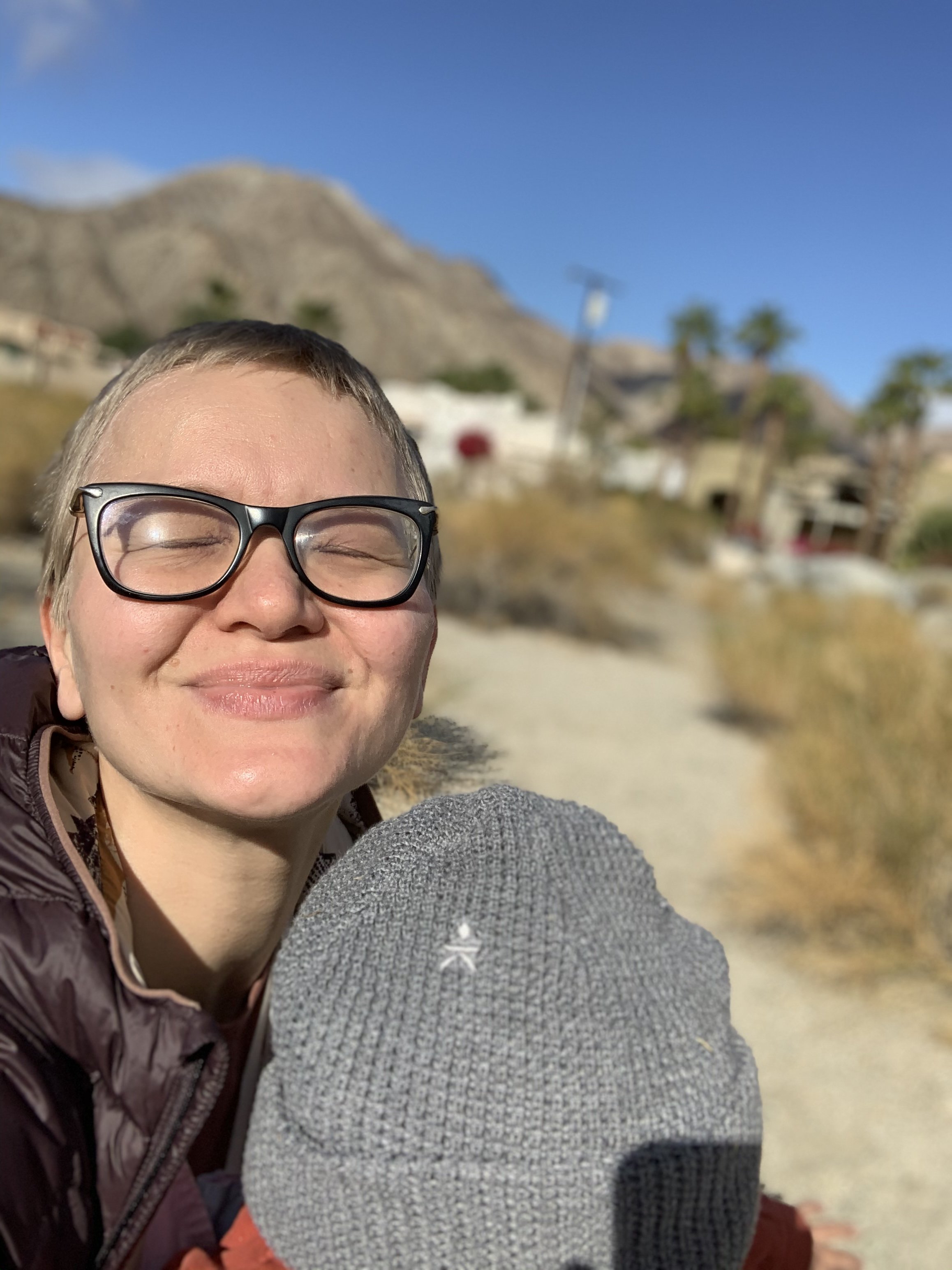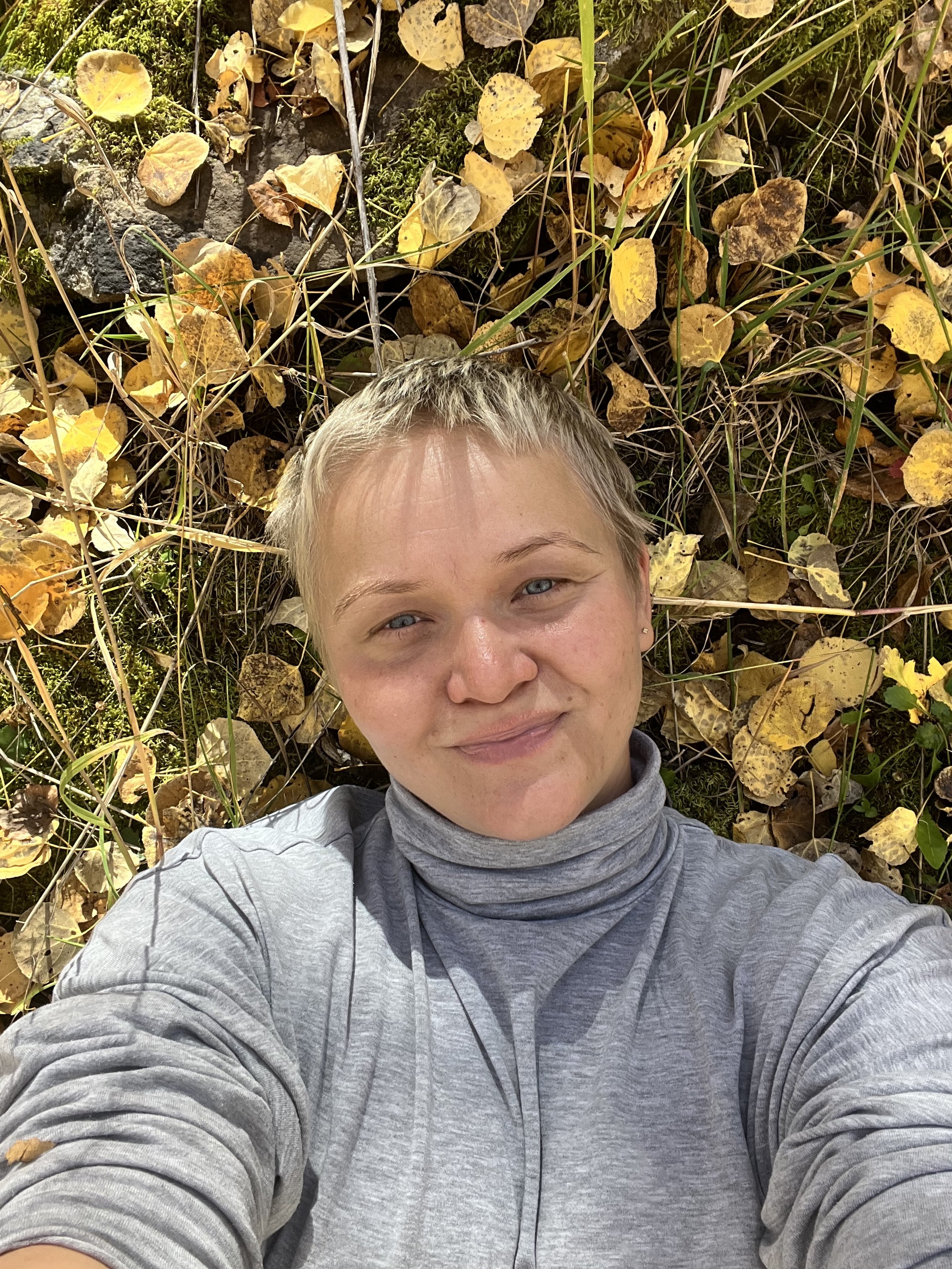Embodied Parenting
A three-week journey into embodied self-care for parents
Parenting has a way of bringing us to our knees — in love, in overwhelm, in the tender space between. Embodied Parenting is a three-week self-care course designed to support YOU, so you can better support your family when the going gets tough.
Together, we’ll explore body-based tools that help you listen to the language of your sensations — your body as a guide, a compass, and a barometer of your capacity to hold the complexities of parenting.
Parenting from the body can be transformational. We learn to notice our own triggers without passing them on, to understand our children’s behaviors through a somatic lens, and to create a home grounded in open communication, kindness, and clarity.
In this series, we’ll explore:
Family dynamics and how co-dysregulation plays out in daily life
Embodied capacity — building the inner steadiness to keep the ship afloat
Boundaries as a creative act, rooted in presence rather than reactivity
Scroll down to learn more & register
Next IN PERSON:
✓ October 27, November 3, November 1o (Mondays)
✓ In downtown Carbondale
Sliding scale $45-130
This small group is a space to practice parenting from a creative, grounded place rather than a reactive one.
These sessions are not about fixing your child or rewriting your own past.
They are about learning how to hold yourself steady in the waves of family life — with compassion, curiosity, and embodied presence.
Join us — even if you feel like you’re barely staying afloat.
Next Up
→ IN-PERSON SESSIONS:
♡ Mondays Oct 27 - November 10, 1 - 2:30pm in downtown Carbondale.
Questions? Email me!-
“Parenting has a way of bringing us to our knees — in love, in struggle, in surrender. If you’re walking the gentle parenting path but sometimes wish for a bit more steadiness and clarity, this series is for you. Over three gatherings, we’ll explore simple, body-based ways to return to presence, hold boundaries with kindness, and root your parenting in the wisdom of your own body.” - Vanda
The Embodied Parenting Journey
This course is taught through some lectures but mostly through conversations and skill-building.
Three themes are explored:
what previous participants say

Join Embodied Parenting
3 week somatic practice group
Three-week somatic practice group.
Vanda Ciceryova Hodgins
Meet your Facilitator
With over two decades in health and wellness, Vanda blends Eastern and Western approaches into a grounded, heart-centered way of working with parents. A yogini, somatic educator, an assistant in the early childhood programs at the Waldorf school and mother of two, she brings lived experience, humor, and deep compassion to her teaching.
Through her training in Relational Life Therapy, Vanda learned to see the magic in human dynamics — and she brings that lens of curiosity and respect to every family she works with.
Join this somatic practice group and begin your own journey of self-discovery, connection, and embodied parenting — with Vanda as your compassionate guide.
FAQs
-
Embodied parenting is a parenting approach that focuses on a parent's physical, felt experience and connection with their child, moving beyond just verbal commands. It involves paying attention to non-verbal cues, body language, and sensory experiences to understand a child's needs and communicate effectively. This approach emphasizes self-awareness, stress management for the parent, and a deep, relational connection with the child, promoting a more intuitive and present style of care.
Key principles of embodied parenting
Focus on the present moment:
It encourages parents to be fully present and experience the joys and challenges of parenting in a mindful, non-reactive way.
Non-verbal communication:
It recognizes that much of parenting is about non-verbal cues, like eye contact, touch, and body language, and teaches parents to be attuned to these signals from their child and themselves.
Parental self-awareness:
A core part of this approach is the parent's own self-awareness, including understanding how their own body holds stress and how their personal history influences their parenting.
Body-centered practices:
It uses practices that help parents connect to their bodies to better manage stress and respond to their children intentionally rather than reactively.
Relational connection:
It emphasizes building a secure and trusting relationship through a "dialogue" of physical and emotional presence, which helps the child feel seen and understood.
Nervous system support:
It incorporates an understanding of the nervous system to help parents support their child's emotional regulation and build their own capacity for self-regulation.
How it differs from traditional approaches
Beyond theory:
It moves beyond just learning parenting theories to actually practicing and embedding new insights into their body, making them available when needed.
Emphasizes feeling, not just thinking:
Instead of focusing solely on what to think or say, embodied parenting centers on what the parent and child feel in the moment.
Addresses the "whole" parent:
It acknowledges that a parent's history, habits, and body are all involved in parenting, and works with these physical and emotional realities.
-
No. The purpose of this group is to practice the felt sense of supporting ourselves as a caretaker while simultaneously gaining resolution through gathering, sharing, witnessing and being witnessed.
-
Infants welcome.
Toddlers need to stay home.
Childcare is hard to come by, I get it. Participating in the community with a child in arms is better than not at all.
However, consider that we are quite enmeshed with our children. When parents are present by themselves and for themselves it is a different headspace - the awareness of the changes we are going through as moms is more accessible.Circle “works” best if parents come alone to be fully able to receive and rest from their caretaking duties.
-
Always. Email me.
-
90 minutes of formal class time.
For in-person gatherings there is always time to chit chat after.
-
In-person circles held twice a year, in the spring and fall.
Each year there are two circles planned, one for Fall and one in the Spring.
Add your email to the notification list for virtual circles below & when there is enough demand to gather online - I’ll send you an email with the details to register.
The best time to plant a tree was twenty years ago, the next best time is now.
- Chinese proverb






